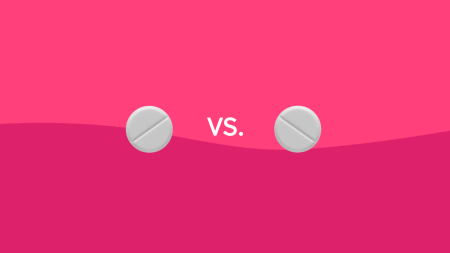Natural Appetite Suppressants: What to Know - GoodRx
Have you ever wondered how to suppress your appetite? If so, you might be curious whether over-the-counter (OTC) appetite suppressants could help. After all, there are many products on the market that claim to control cravings and curb appetite — and ultimately, help with weight loss.
Products labeled as “all natural” appetite reducers might sound tempting. But there’s not a lot of evidence that they actually work. Some can even be risky. And in reality, eating (and weight) is a lot more complex than simply taking a natural “hunger suppressant pill.”
Here, we’ll look at some products that claim to lower your appetite and help you lose weight. Spoiler: When it comes to changing your body weight, there’s no good scientific evidence to support the use of any natural hunger suppressant.
A weekly shot to lose weight*
GLP-1s can help you reach your weight loss goals—and stay there. Tap now to see if you qualify
*With diet and exercise. Supplies limited. See Important Safety & Black Box Warning at ro.co/safety-info/glp1.
What are natural appetite suppressants?
Natural appetite suppressants are herbs or supplements that claim to be natural alternatives to weight-loss medication. In theory, they make you feel more full, have fewer food cravings, and supposedly boost your metabolism.
You might have heard of some of these, like fenugreek, green tea, and yerba mate. Other examples include:
-
Glucomannan
-
Caralluma fimbriata
-
Griffonia simplicifolia
-
Garcinia cambogia
-
What’s it like to be fit and fat? Personal trainer and author Louise Green shares her story of becoming confident and fit in a larger body.
-
Can intuitive eating help you understand hunger? Feminist Rachel Bloor shares how intuitive eating taught her to know when she’s hungry or full, and helped her escape diet culture for good.
-
What’s it like to take Wegovy for weight loss? Blogger Alyssa Sepulveda shares her experience with taking Wegovy to lose weight and reverse her prediabetes.
But there’s no good evidence that any natural supplements can help you lose weight. Sure, some herbs and supplements may help you lose a pound or two in the short term. But they won’t work long term. And, in some cases, they could even cause you harm.
Here, we’ll compare the claims of some popular supplements to the evidence — or the lack of it. We’ll also outline any potential risks of natural appetite suppressants.
You can find a more complete list of weight-loss supplements and their evidence and risks in this helpful fact sheet from the National Institutes of Health Office of Dietary Supplements.
Natural appetite suppressants that might work for weight loss
According to this literature review, only these supplements seem to potentially suppress appetite in humans:
-
Caralluma fimbriata
-
A combination of garcinia cambogia plus Gymnema sylvestre
But keep in mind: The review also says that more research is needed to understand any possible long-term effects.
5-HTP
5-HTP is another supplement that may have a role in appetite control and weight loss. This supplement is a precursor to serotonin and is extracted from the plant Griffonia simplicifolia. Some small studies suggest it may increase feelings of fullness, but it’s not clear that this translates into appetite suppression or weight loss.
And there are some risks, too. According to Gregory Lopez, PharmD, lead researcher at Examine, 5-HTP can cause stomach upset in the short term. He said that 5-HTP “can also interact with [medications] like SSRIs and increase the risk of serotonin syndrome.”
Protein powders
There’s good evidence that protein is more satisfying for hunger than carbs or fat. But what about boosting a meal with protein powder? Does this have an add-on effect?
“There’s some evidence that protein supplementation can increase satiety, but it’s a bit mixed,” Lopez said.
Here’s why. There are lots of different ways to do this research, and the evidence is different in different groups of people. For example, the results in high-performance athletes won’t necessarily apply to regular, healthy volunteers or people living with chronic conditions.
There’s some evidence that whey protein might be especially helpful for people trying to change their body shape and composition. Lopez said there was some good evidence that showed decreased “weight and waist circumference over 6 months of supplementation with whey protein.”
These results were particularly impressive since the study participants were adding whey protein powder to their normal diet, which remained the same as the control group, he said. Other studies have shown that whey protein supplementation might work best when combined with resistance training, and a low-calorie diet.
Overall, the evidence suggests that protein supplements may improve fullness, with whey protein being better for short-term hunger suppression, and casein being better for longer-term fullness. But “this is far from a slam dunk,” according to Lopez.
Fiber and fiber supplements
Eating fiber is a great way to satisfy hunger and feel fuller for longer. And it’s low in calories. In particular, foods high in soluble fiber can swell to fill the stomach and make you feel more full. But this isn’t the only way fiber may promote weight loss.
According to Morgan Pfiffner, a researcher at Examine, “as important (or even more important) as reducing hunger, seems to be the ability of fiber to bind macronutrients... resulting in fewer calories being absorbed by the body.”
He said there’s “compelling evidence” that this effect can lead to weight loss.
Foods high in insoluble fiber can also help signal fullness because they take more time to chew. And fiber-rich foods have many health benefits beyond appetite and weight control.
But what about fiber supplements? A popular fiber supplement is psyllium powder (Metamucil) (70% soluble fiber). It’s commonly used as a bulk-forming agent to relieve constipation.
Pfiffner said there’s some evidence that psyllium supplements help with promoting fullness. “The research isn’t the strongest, though, and would benefit from follow-up in a broader range of populations and contexts.” Weight loss is one example. Psyllium supplementation before meals does seem to help with a moderate amount of weight loss, he said.
Keep in mind that with any fiber supplements, there are risks and side effects to consider.
Supplements that don’t work for weight loss
Berberine
What it is: Berberine is a plant-derived supplement that has been called “nature’s Ozempic.”
The claim: Berberine is said to lower blood glucose levels, cholesterol levels, body fat, and weight.
The evidence: There’s no good evidence that berberine alone is an effective alternative to weight-loss medications in humans. It may help improve metabolic health when added to medications that are approved to treat these conditions.
The risk: Berberine can cause stomach upset and interactions with other common medications. It also has risks for people with liver or kidney problems. And, like other supplements, berberine isn’t regulated, so the ingredients in supplements will vary.
Green tea extract
What it is: Green tea extract is a concentrated form of green tea in a capsule.
The claim: Naturally occurring catechins and caffeine are said to speed up metabolism and help with weight loss and weight-loss maintenance.
The evidence: A Cochrane review of 15 randomized control studies found that the effect of green tea extract on weight loss and weight-loss maintenance was so small that it was insignificant.
The risk: Caffeine increases blood pressure and should be used carefully by people with a risk of heart or blood pressure problems.
Conjugated linoleic acid (CLA)
What it is: CLA is a type of fat found in dairy foods and beef. CLA supplements are made by chemically changing natural sources of linoleic acid.
The claim: CLA is said to increase the breakdown of body fat and reduce the amount of fat cells created in the body.
The evidence: While some individual studies may show small improvements in weight compared with a placebo (sugar pill), there’s no evidence to support this.
The risk: There isn’t enough good-quality evidence to say if CLA is safe or not. People taking CLA supplements reported upset stomach and change in their bowel habits. There’s also some concern that CLA supplements could affect cholesterol and glucose levels in the blood.
Chitosan
What it is: Chitosan is a supplement made from shells of crustaceans, like shrimp, crabs, and lobster.
The claim: Chitosan is said to bind fats in the gut, reducing their absorption. It’s also thought to lower blood cholesterol levels.
The evidence: A Cochrane review of 13 studies concluded that chitosan was linked to a small amount of initial weight loss (3 lbs to 4 lbs). But when the researchers looked at higher-quality studies over longer periods of time, the effect of chitosan on weight loss was minimal. They noted that the quality of these studies was poor.
The risk: Side effects of chitosan are usually not severe. People report digestive disturbances, such as:
-
Gas
-
Bloating
-
Nausea
-
Constipation
-
Heartburn
If you are allergic to shellfish, then it’s best to avoid using this as an appetite suppressant.
Grapefruit
What it is: Grapefruit is a citrus fruit that has been a regular on the fad diet scene for decades.
The claim: Grapefruit and grapefruit essential oil are said to burn fat and boost metabolism.
The evidence: An analysis of the available research in humans found no evidence that grapefruit alone has any effect on weight.
The risk: Grapefruit itself is safe, but it can interact with several common medications, such as:
-
Blood pressure medications
-
Blood thinners
-
Erectile dysfunction medications
-
Antihistamines
-
Pain medications
-
Birth control pills
It’s best to check with a healthcare professional or pharmacist if you plan to start consuming a lot of grapefruit.
Natural appetite suppressants that could be dangerous
Garcinia cambogia
What it is: Garcinia cambogia is a pumpkin-sized fruit native to Indonesia. It’s also known as gamboge, brindleberry, and Malabar tamarind. The main active ingredient is hydroxycitric acid, which is also found in other garcinia species. Until 2009, it was found in the weight-loss pill Hydroxycut.
The claim: Hydroxycitric acid is said to promote weight loss by increasing metabolism and suppressing appetite.
The evidence: A review of studies found that — at best — a very small amount of short-term weight loss could occur. The researchers noted that the quality of evidence they reviewed was generally poor and short in duration.
The risk: This supplement can lead to severe liver failure, causing death. In 2009 the FDA banned Hydroxycut with garcinia.
Guar gum
What it is: Guar gum is a fiber extracted from the seeds of the guar bean, or cluster bean. It’s used in gluten-free foods as a binding agent and in weight-loss supplements.
The claim: Guar gum is said to bind food in the stomach, promoting a feeling of fullness and reducing appetite.
The evidence: In a study of 20 of the best kinds of studies available (randomized, double-blind, placebo-controlled clinical trials), guar gum caused no more weight loss than a placebo pill. More recently, a study showed that guar gum decreased waist circumference in people with diabetes, but without lowering weight.
The risk: Guar gum causes more problems than it solves. Abdominal pain, cramps, flatulence, nausea, and diarrhea are common side effects. And there have been reports of esophageal and intestinal blockage in people taking a now-discontinued version of guar gum.
Glucomannan
What it is: Glucomannan is a fiber that comes from konjac root and is capable of absorbing large amounts of water.
The claim: Similar to guar gum, glucomannan is said to increase feelings of fullness.
The evidence: A 2014 review of studies and analysis didn’t find evidence to suggest that using glucomannan had a significant effect on weight or body mass index (BMI). Researchers noted the poor quality of studies and insufficient (too small) sample size (number of participants).
The risk: Side effects are mostly related to gastrointestinal discomfort — gas, bloating, diarrhea, and constipation. But, in its tablet form, glucomannan was linked to blockage of the esophagus in previous reports.
Ma huang (ephedra)
What it is: Ma huang, also known as ephedra, is a plant native to China. The plant’s stem contains ephedrines, which are similar to the human hormones epinephrine and norepinephrine. Ephedra was commonly combined with caffeine in weight-loss and athletic supplements in the 1990s.
The claim: The active ingredient ephedrine is a stimulant that’s said to cause weight loss by increasing energy output and reducing appetite.
The evidence: Ephedrine was found to be somewhat effective for short-term weight loss. People taking it lost 1 lb to 2 lbs more than those taking a placebo. But it had no effect on athletic performance.
The risk: The FDA banned ephedra and other plant-based ephedrines in 2004 due to serious safety concerns, including death. Side effects include:
-
Nausea and vomiting
-
Anxiety
-
Mood changes
-
High blood pressure
-
Racing heart rate
-
Stroke
-
Seizures
-
Heart attack
Bitter orange
What it is: Bitter orange refers to a citrus tree and its fruit, also known as Seville orange. The fruit peel, flower, and leaves are used as flavorings and ingredients in many foods, including marmalade and triple sec, a citrus-flavored liqueur. After the FDA banned ephedra, bitter orange became known as an “ephedra substitute.”
The claim: The active ingredient is synephrine, similar to ephedra (ma huang). Synephrine is claimed to help with weight loss by speeding up metabolism, burning fat, and suppressing appetite.
The evidence: Based on the available evidence, it’s impossible to say whether bitter orange works for weight loss. That’s because it’s almost always combined with other ingredients. There’s some evidence across 23 small human trials that it might boost metabolism. Overall, the evidence is weak or inconclusive.
The risk: People taking bitter orange have experienced a range of severe side effects, such as muscle aches, headaches, and anxiety. They can also include:
-
Chest pain
-
Dangerously high heart rate
-
Cardiac rhythm problems
-
Stroke
-
Heart attack
-
Death
It’s not clear if these are caused by synephrine alone or by other ingredients commonly combined with bitter orange in diet supplements.
Supplements without enough evidence to show they work or are safe
There’s not enough evidence to show that the following supplements work, or that they’re even safe for humans:
-
Chromium
-
Gambisan
-
Cynanchum auriculatum
Supplements not tested on humans for weight loss
These supplements haven’t been tested on humans for weight loss:
-
Fenugreek has only been tested on mice for weight loss, and it doesn’t work.
-
Gymnema’s effect on weight has only been studied in rats.
-
Hoodia gordonii is thought to suppress appetite in rats. But the only study in humans didn’t show an effect on weight.
What factors affect your appetite?
Appetite suppressants are foods, supplements, or medications that lower your appetite and prevent you from getting hungry. But whether they can also stop your eating, or actually change your body weight is another question. That’s because, for most of us, the relationship between hunger, appetite, and what, when, and how we eat is complex.
The body has many ways to tell you that you’re hungry and it’s time to eat. At the most basic level, the stomach and intestines send signals to the brain, which makes you feel hungry and want to eat. When you eat and start to digest, your body sends other signals to your brain that your energy needs have been met, and that it’s time to stop eating.
But emotions, habits, and culture can all affect your relationship with food. Sometimes people eat for entertainment, pleasure, or as part of a social gathering ritual. People might eat out of boredom or to self-soothe after a stressful day. All this means that the mind can misread the body’s physical cues and struggle to tell the difference between hunger and cravings.
On top of that, genetic makeup means that some people will be more prone to overeating and be less able to regulate appetite.
Are natural appetite suppressants safer than prescription medication?
No, natural products are not safer than prescription treatments. “Natural” can be a misleading term. Supplements may be marketed as containing “naturally occurring substances,” but this doesn’t mean that they’re safe.
The problem is that weight-loss supplements aren’t approved — or even reviewed — by any regulatory body. Because they’re not classified as medication, the FDA doesn’t monitor their safety.
But the FDA does look into reports of harms caused by them. In fact, the FDA has found that many appetite suppressants claiming to have weight-loss benefits have been tainted with other prescription medications. These include antidepressants, amphetamines, and diuretics.
When considering any supplement, it’s important to consider its benefits against its risks. Taking a weight-loss supplement is a big health risk for something that’s unlikely to have any positive effect on your weight-loss journey.
What are the possible side effects of natural appetite suppressants?
There are many possible side effects, and they vary by the type of suppressant. Common side effects include:
-
Gastrointestinal problems (gas, changes in bowel habits, nausea)
-
Headache
-
Dizziness
-
Effects on blood pressure and heart rate
Do you need to talk with a medical professional before starting natural supplements?
Yes, absolutely. You should always speak with your doctor or other primary care provider before you start taking natural supplements. This is especially true if you have other medical conditions or take medications regularly.
There are accredited healthcare practitioners who may have experience using supplements as part of a comprehensive weight-loss plan. The key is that these should be part of a bigger treatment plan under the supervision of an expert.
Other options for lessening your appetite
There are safer and more effective ways to lessen your appetite than expensive, unregulated, and potentially dangerous weight-loss supplements.
And here’s the reality: Lifestyle changes are the only true healthy alternatives to prescription weight-loss medications. With the right professional support, you can lose more weight through structured behavioral change programs than through usual medical care alone.
Foods and behaviors
Sometimes, changing your eating habits can help you to control your appetite. And some foods help you stay full for longer and can even send signals to your brain that you’re no longer hungry.
Here are some strategies to consider:
-
Prioritize calories from lean protein, slow-release carbohydrates, and high-fiber foods.
-
Reduce how much sugar and salt you consume.
-
Drink more water before and during meals.
-
Eat slowly and preferably at the same times every day if you can.
Some people also find it’s helpful to practice mindful eating. This can help you be more aware of what you’re eating — and why. It can also help you fully enjoy food and appreciate it as nourishment.
Medications
There are also medications that can help to suppress the hunger your brain feels and help you to feel more full. Some of these are approved for weight loss, while others are used off-label. Examples of prescription medications that can lower appetite include:
-
Phentermine (Adipex-P, Lomaira)
-
Phendimetrazine (Bonzil)
-
Diethylpropion
-
Benzphetamine (Didrex)
-
Tirzepatide (Zepbound)
-
Semaglutide (Wegovy, Ozempic)
-
Liraglutide (Saxenda)
These medications suppress appetite by mimicking certain hormones that signal fullness and reducing other signals of hunger and cravings. They are not free of risk, but in some cases they can help with weight loss.








